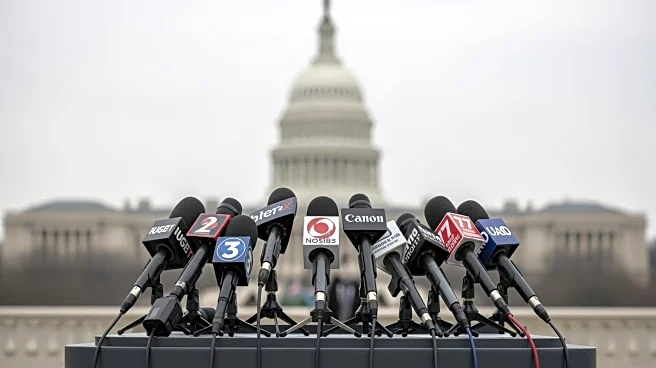What's Happening?
Five major broadcast networks, including NBC, have announced their refusal to sign the Pentagon's new press policy. The networks argue that the policy is overly restrictive and threatens journalistic freedoms. The new rules, detailed by NBC News' Jonathan
Allen, are seen by journalists as limiting their ability to report on national security issues. The policy requires journalists to adhere to specific guidelines that restrict access to information not officially released by the Defense Department. This move has sparked significant concern among media organizations, who view it as a precedent-setting threat to the principles of a free press.
Why It's Important?
The refusal by major networks to sign the Pentagon's press policy highlights a significant tension between media organizations and government agencies over press freedom. This development could impact how national security issues are reported, potentially limiting public access to critical information. The networks' stance underscores the importance of maintaining journalistic independence and the ability to report without undue government interference. The broader implications could affect public trust in both media and government, as well as influence future policy decisions regarding press access and freedom.
What's Next?
As the networks continue to reject the Pentagon's policy, it remains to be seen how the Defense Department will respond. There may be further negotiations or revisions to the policy to address the concerns raised by media organizations. Additionally, other news outlets may join the major networks in their refusal, potentially leading to a broader media coalition against the policy. The situation could also prompt discussions within government circles about balancing national security with press freedom, possibly influencing future legislative or regulatory actions.
















